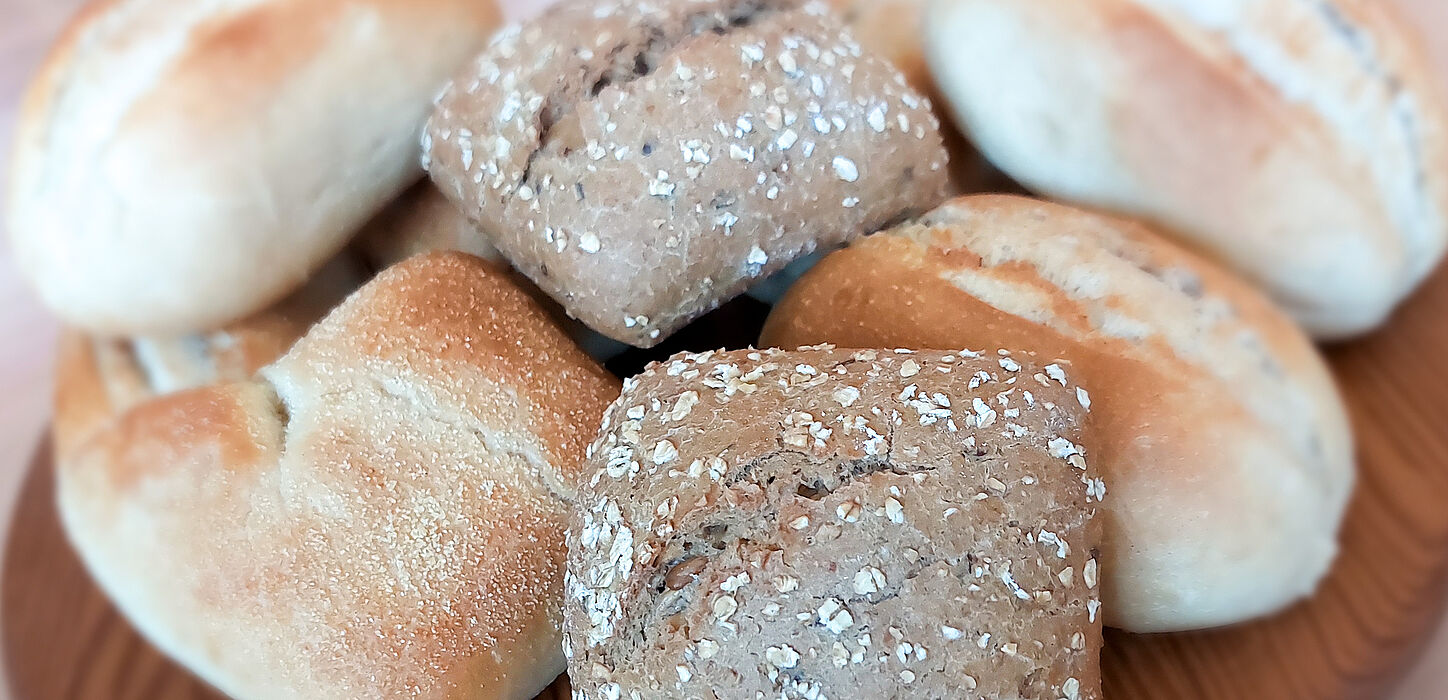Consortium from research and industry develops new system
The best thing since sliced bread: industrial small baked goods production is now a fully automated process. However, up to 15 percent of the baked goods produced do not end up in displays or on breakfast tables, but instead are destroyed due to manufacturing errors or overproduction. A consortium from research and industry is examining how this manufacturing process for rolls, doughnuts, pretzels and so on could be made more sustainable. The goal: throw away fewer baked goods, and instead make optimum use of resources and ensure higher quality levels. Together they have developed an intelligent system that continually records product quality along the entire baking production line and automatically adjusts machine parameters to the relevant ingredients and quantities.
The ‘SensoBack’ project (to develop a sensor, control and control station system linked to a cloud for the field of pastry production) has been successfully concluded after three years. Alongside Paderborn University's Heinz Nixdorf Institute, the other participants were the Fraunhofer Institute for Mechatronic Systems Design IEM, bakery machine manufacturer WP Kemper GmbH (project lead), imaging and robotics specialist CLK GmbH, and platform developer myview systems GmbH. The project received a total of 1 million euros of funding from the European Regional Development Fund (ERDF) as part of the Produktion.NRW leading market tender.
Better baking
“Even in the most state-of-the-art high-performance systems, product quality and resource efficiency are ultimately dependent on system operators”, explains Professor Ansgar Trächtler, leader of the ‘Control Engineering and Mechantronics’ research group at the Heinz Nixdorf Institute and head of the Fraunhofer IEM. This is because despite all the automation, it is humans who adjust the individual process parameters, such as temperature, to the properties of the different raw materials (such as different types of flour).
The newly developed system should help bakers optimise product quality and also make better use of their available resources. The plan for more sustainable industrial baking: at various points during the manufacturing process, sensors in the production facility record the quality of the baked goods in terms of shape, weight and dough properties. The intelligent system then compares each baking step with the specifications. These measured values are used for process control: ‘Individual parameters in the machines can be quickly adjusted to ensure that the small baked goods remain of consistently high quality even with changing ingredients or quantities. For example, it can ensure that the pieces of dough produced are of the desired weight be adjusting the pressure during portioning’, explains Leon Bussemas, research assistant at the Heinz Nixdorf Institute.
The data is stored for each individual piece of dough and can be viewed and adjusted very easily via a graphical front-end. “The modular ‘virtual master’ baker enables clients to add additional services for analysis, alert and optimisation purposes within the baking process, and execute these in the cloud or locally on their own IT infrastructure, as desired. This is a successful example of the software-as-a-service approach”, notes Mike Figge of Fraunhofer IEM.
Pieces of dough that still do not meet the bakers’ quality requirements are automatically removed by the new system, and the dough is returned for re-use. The importance of this work is highlighted by Dr. Felix Oestersötebier, Head of Electrical Design and Software at WP Kemper GmbH: “This system has huge potential. As a ‘virtual master baker’, it is able to reduce the currently high levels of wastage due to insufficient quality, by continually determining optimum parameters and via the option to intervene early at the press of a button. This means that the quantity margin currently added to the actual quantities required during production planning in order to offset these losses will be able to be largely eliminated.”
Sustainable cleaning of production facilities
This newly developed sensor and control technology could also be used in the future to ensure compliance with hygiene standards: previously, production facilities have been cleaned at set intervals, regardless of their actual sanitary status. As this has a direct impact on product quality and resource efficiency, the project team feels that the process could be optimised, for example by using camera systems and optical analysis software within machines to ensure that in future, they are cleaned based on their actual level of contamination.


